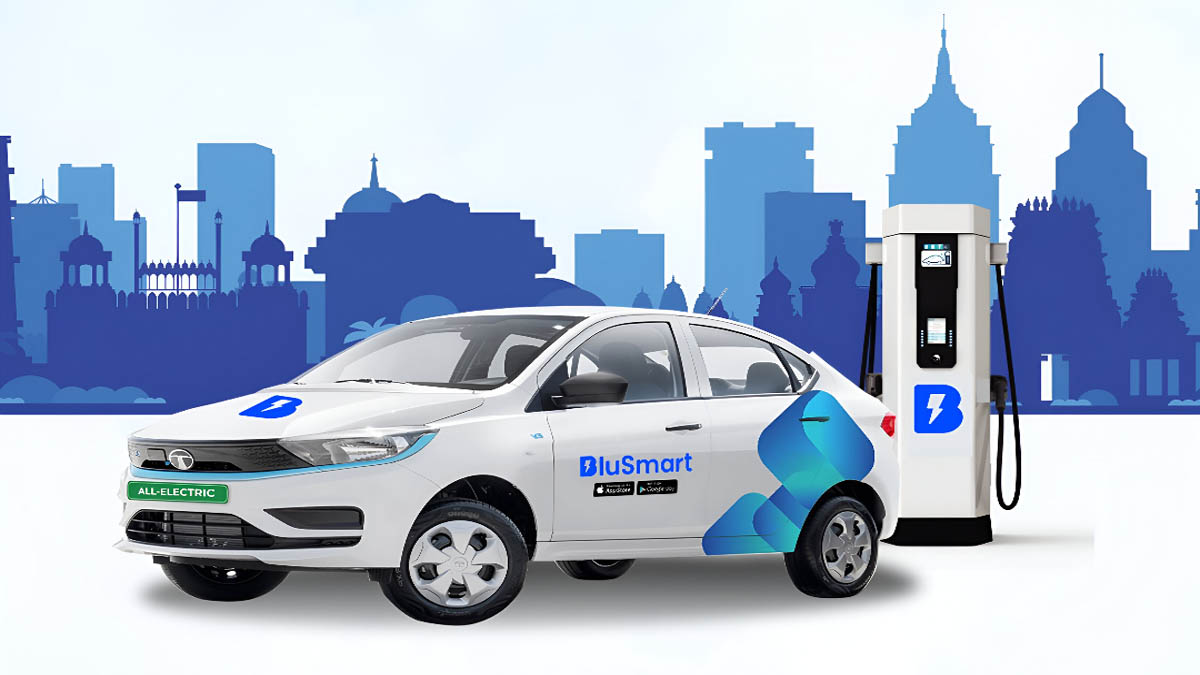Now Reading: Gensol Engineering and BluSmart: A Partnership Under Scrutiny in India’s EV Landscape
-
01
Gensol Engineering and BluSmart: A Partnership Under Scrutiny in India’s EV Landscape
Gensol Engineering and BluSmart: A Partnership Under Scrutiny in India’s EV Landscape

The Indian electric vehicle (EV) ecosystem has been a hotbed of innovation and growth, with companies like Gensol Engineering and BluSmart playing significant roles. Gensol Engineering, established in 2012, has positioned itself as a comprehensive solar energy solutions provider, offering engineering, procurement, and construction (EPC) services, as well as venturing into EV leasing and manufacturing. BluSmart, on the other hand, emerged in 2019 as an all-electric ride-hailing platform, aiming to revolutionize urban mobility with a focus on sustainability and reliability.
Initially, the relationship between Gensol and BluSmart appeared to be a symbiotic one. Gensol, with its expertise in renewable energy and its foray into EV leasing, became a crucial partner for BluSmart, providing a significant portion of its electric vehicle fleet through leasing arrangements. This asset-light model allowed BluSmart to scale its operations without the heavy capital expenditure of outright vehicle ownership. Furthermore, the co-founding link between the two companies, with Anmol Singh Jaggi being a promoter in Gensol and a co-founder of BluSmart, further cemented their close ties.
However, recent developments have cast a shadow over this partnership. The Securities and Exchange Board of India (SEBI) has initiated an investigation into Gensol Engineering and its promoters, including Anmol Singh Jaggi, over allegations of fund diversion. The regulatory body has barred them from accessing the securities market and holding key managerial positions in Gensol, citing concerns about the misuse of funds raised for electric vehicle procurement.
Specifically, SEBI’s investigation suggests that a substantial portion of the loans obtained by Gensol for purchasing EVs, intended for lease to BluSmart, may have been diverted to related entities and for personal expenses. This has raised serious questions about the financial dealings between the two companies and the governance practices at Gensol Engineering.
The immediate impact of this regulatory scrutiny has been significant for BluSmart. The ride-hailing platform has reportedly suspended its services in major operational cities like Delhi-NCR and Bengaluru, leaving commuters stranded and raising concerns about the company’s immediate future. This disruption underscores the deep reliance BluSmart had on Gensol for its fleet and potentially its financial backing.
Looking ahead, the future of the Gensol-BluSmart relationship remains uncertain. Reports suggest that BluSmart might be considering a strategic shift, potentially moving away from its core ride-hailing business to become a fleet partner for a larger player like Uber. This potential pivot indicates the challenges faced by EV startups that heavily depend on external financing and the vulnerabilities exposed by regulatory actions against key partners.
The unfolding situation serves as a critical juncture for India’s burgeoning EV sector. It highlights the importance of robust financial governance and transparency within the ecosystem. While the initial partnership between Gensol Engineering and BluSmart showcased a promising model for EV adoption in the ride-hailing space, the current regulatory headwinds necessitate a closer examination of the financial underpinnings and related-party transactions within the industry to ensure sustainable and ethical growth. The developments will be closely watched by investors, consumers, and policymakers alike, as they navigate the path towards a cleaner and more electrified transportation future for India.










